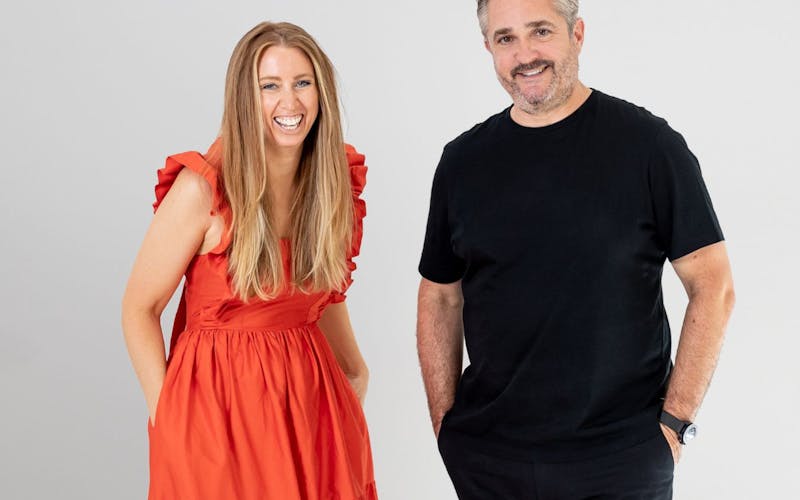

for Walpole members and
non-members available now
at The Londoner



Walpole: What is Pelorus Foundation?
Megan Williams: Pelorus Foundation is an independent charity that empowers individuals and local communities to protect and preserve the world’s wildlife and wild places for future generations. We support innovation and give a voice to those who need it, in order to disrupt the status quo and bring about positive action.
Why was this initiative created and why is it an essential part of the wider Pelorus brand?
Pelorus Foundation was born out of an unignorable sense of urgency to act now. Having travelled the world extensively, the founders of Pelorus, Geordie Mackay-Lewis and Jimmy Carroll, experienced some of the world’s greatest natural wonders – yet with this, they also witnessed widespread environmental destruction taking place at a terrifying rate.
Shocked by what they saw - endangered wildlife killed for their horns and decimated ancient forests with native roots - their travels also brought hope, or more specifically, the people they met brought hope. From fascinating individuals committing their lives to protecting the last wildernesses to the movers and shakers corrupting traditional outlooks to find innovative conservation solutions. They saw defiance, a will to fight the current trajectory of our planet, whether that was herding families in Northern Mongolia, storm-battered island communities, or field rangers fighting a terrifying poaching war in Africa. Pelorus Foundation was founded on this undercurrent of change. Our mission being to harness it, serve those driving it, and empower our network to maximise their impact.
It’s an essential part of Pelorus because it’s inherent to the brand’s values, underpinning how the company wants to shape the industry to drive travel as a positive force. It is also important because it aligns Pelorus with, and appeals to, employees, businesses and clients who share similar values. Often when new recruits are asked what drew them to Pelorus, it’s the Foundation. This is the kind of team Pelorus want to build in order to create a purpose-driven travel company. Pelorus understand that travel is a privilege that comes with a responsibility, and for them, the Foundation ensures that travel has a meaningful long-term impact.
How do the two organisations interact?
The relationship between the Foundation and Pelorus is symbiotic: the work of Pelorus drives the Foundation and the Foundation’s mission drives Pelorus. In terms of funding, together with donations received from other supporters and corporate partners, helps to catalyse much of our work. Travel with Pelorus is also balanced through the Climate Investment Fund, a dynamic carbon removal portfolio curated and managed by the Foundation. The fund works to balance the emissions from each trip by investing in some of the world’s leading carbon removal solutions. From technology-driven blue carbon, reforestation, agroforestry, enhanced rock weathering and soil carbon sequestration, the portfolio aims to support communities on the front line of the climate crisis, whilst investing in pioneering technology.
Pelorus encourages their employees to engage with the Foundation either by volunteering skills and expertise on various projects in our shared office space or through Foundation days. These are specific days where employees spend time out of the office to either get involved in a conservation project or fundraise for the Foundation (last year saw teams scale the Three Off-Peaks and the Seaboard Seven in South Africa).
Working together with Pelorus, another exciting concept we’re developing are high impact conservation trips for Foundation donors. These are truly transformative experiences that offer exclusive interactions with wild places and animals, led by the people who are working to protect them.
Sustainability can be a rather catch-all term in the business world. What does sustainability mean to Pelorus Foundation?
I agree that sustainability has become somewhat of a buzzword in the business world, but the meaning is somewhat different for us as we’re not a business. We’re not in this to make money, we’re in this to drive change, which goes beyond sustaining the status quo.
For many businesses, sustainability is about balancing negative impacts, but for us it’s different, it’s all-encompassing and at the very core of every decision we make. Our aim is to find and support sustainable ways to preserve our planet, so in relation to Pelorus Foundation, the word is best used as an adverb; it’s certainly a way in which we do things, but it’s not a wholly accurate summary of what we do. And if our work can be amplified and accelerated through businesses’ sustainability strategies, that’s great for us.
What are the main sustainability focuses or campaigns of Pelorus Foundation over the coming year?
This year we’re particularly focused on the sheer dynamism surrounding ocean solutions, from the potential of oceanic climate action to coastal community projects tackling rural poverty. It’s an exciting and innovative space which we want to be at the forefront of, initiated through our existing investment in kelp blue carbon credits and partnership with a grassroots project in Kenya that’s developing scalable community-led ocean conservation solutions. The potential for ocean restoration feels incredible right now, only heightened by recent discussions at World Ocean Summit and the United Nations High Seas Treaty.
The other element we’re developing is a sustainability consultancy service aimed at driving positive change through the travel industry in a meaningful way.
How did you come to work with Pelorus Foundation? What’s your career background?
My career background is with the United Nations, and before that I worked as a freelance journalist writing for various publications on environmental issues. I was drawn to working at Pelorus Foundation because of the potential to drive the direction of the start-up charity and the organisation’s desire to support innovative solutions pioneering a new era of conservation and climate action.
Why are you passionate about your work at Pelorus Foundation?
My passion for my work with Pelorus Foundation is linked to my love of the outdoors, growing up in rural north Wales and spending months every summer on the northwest coast of Scotland. A desire to protect and enhance what has always been so important to me is integral to who I am - instilled in me by my parents who always had us out planting trees, peering into hives in oversized beekeeping suits, and building damns to improve river systems.
On a day-to-day basis, I’m passionate about the critical thinking that comes with finding solutions for the future, many of which are rooted in ancient practices and thinking. I love it when these two concepts come together. And as an industry generally, there is so much passion, and I find this a very inspiring environment to be working in.
What’s an element of the discussion around sustainability in the luxury sector that you don’t think is talked about enough?
I think what’s not being discussed around sustainability in the luxury sector is that there is more to carbon credits than carbon. The discussion has become very ‘carbonised’, and when I say this, I mean the narrowed view of carbon credits simply as a tool to absorb carbon from the atmosphere – the pitfalls of which have been raised in recent news articles in light of low-quality carbon avoidance credits.
I believe there’s a bigger picture than this, and the carbon removal industry still remains one of the most powerful mechanisms to drive socioenvironmental development. Carbon credits should provide high-quality carbon removal, that goes without saying, but they should also be holistic in their approach to addressing numerous SDGs, as well as support the scale of emerging technologies that might just play a crucial role in history.








